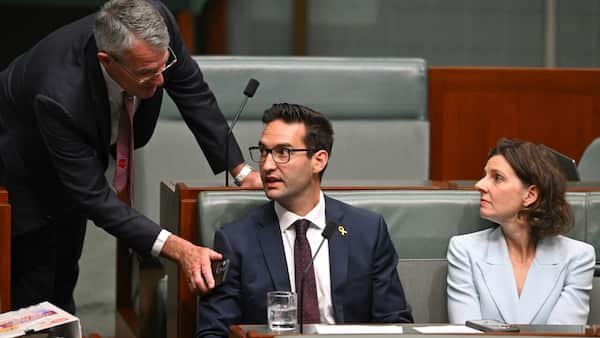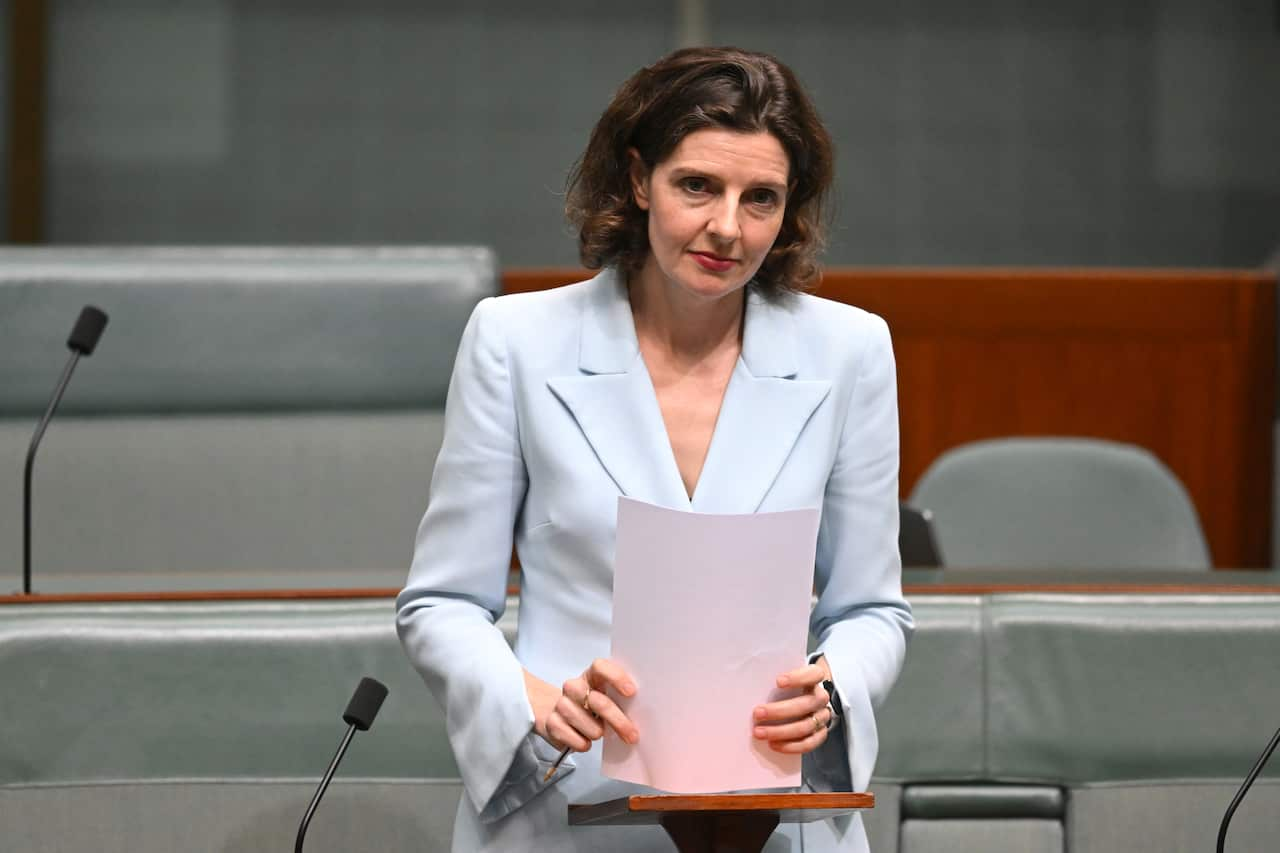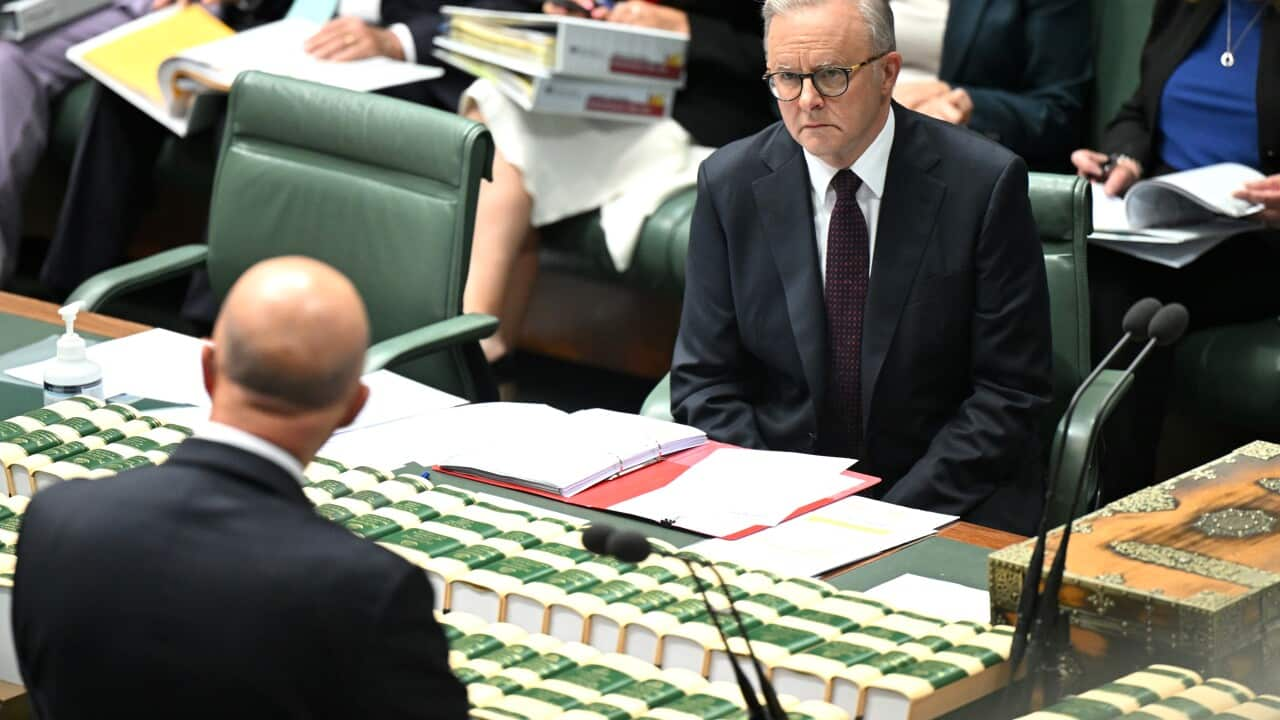The Albanese government has tabled new hate crime laws for debate as it faces increased pressure to address a rise in antisemitic attacks.
On Tuesday, the first day of the parliamentary year, “unequivocally condemning antisemitism” and Prime Minister Anthony Albanese said “hateful prejudice has no place in Australia”.
However, the proposed hate crime laws, which were debated for more than six hours in the House of Representatives on Wednesday, have been criticised as not going far enough by some.
Independent MP Allegra Spender, whose Sydney electorate of Wentworth has a large Jewish community, wants to see criminal penalties for hate speech that could lead to violent attacks.
But Luke McNamara, professor in the Faculty of Law and Justice at the University of New South Wales, said Spender’s bill amendment is “deeply troubling”.
He broke down the proposed law changes.
What is the hate crime bill proposing?
McNamara explains it is already a serious criminal offence under federal law — carrying a seven-year maximum penalty — to urge violence against a targeted group, including those defined by race, religion, or national origin.
He said the proposed changes will expand existing offences in a “pretty modest way”, including:
- Changes the fault element to recklessness, meaning the prosecution doesn’t have to prove intent behind the alleged perpetrator’s actions.
- Introducing a second-tier offence for threatening violence against a targeted group which would attract a maximum penalty of five years.
- Extend the protection of the laws beyond existing categories of race and religion to broader subset groups on receiving end of hate speech including due to their sexual identity, sexual orientation, gender identity, intersex status or disability status.
What would the impact of the proposed hate crime laws be?
McNamara thinks the changes will have “very little effect in practice” as it focuses on people urging violence against a particular group, which can be difficult to detect. Meanwhile, the recent rise in antisemitic attacks is “unambiguously criminal”.
Since the 1980’s hate speech that encourages hatred, severe ridicule, contempt for a group, or in some form offends, insults, humiliates or intimidates, has fallen under civil law and is not a crime.
The criminal law is reserved for serious forms of vilification that McNamara said “actively encourage violence against members of a group or encourage damage to property belonging to that group”.
He stressed that racist violence, or firebombing of cars seen in recent months are serious criminal offences that are prosecuted by police under existing criminal laws.
“I think what the government has done here is to seek to respond to the calls for better, greater, stronger protection, particularly in relation to concerns about antisemitism,” he said.
“And so they’ve responded, or they’re proposing to respond to those calls. But I think the effect will be largely symbolic.”
Concern Spender’s proposal ‘deeply troubling’ for free speech
Spender has proposed amending the bill to outlaw serious vilification or promotion of hatred, gaining the support of LGBITQ+ advocacy group Equality Australia and the Executive Council of Australian Jewry.
“Words matter. We are a country that values our cohesion, values our diversity, but words matter, and they matter in terms of what it leads to in the future, words are the start of many things that we don’t want as a country,” Spender told reporters on Tuesday.
Wentworth MP Allegra Spender introduced a motion condemning antisemitism in Parliament on Tuesday. Source: AAP / Lukas Coch
Equality Australia CEO Anna Brown welcomed tougher federal protections on hate speech, stating that the only way to stop hate is to “stop it at its source”.
“While freedom of expression must be protected it is also vital that we stamp out the vile hate-mongering that encourages and enables vicious attacks on minorities and other vulnerable groups,” she said.
However, McNamara said this is a “very controversial step” as it effectively criminalises hate speech, even if it does not involve threats of violence or threats of damage to property.
Understanding concerns over a rise of antisemitism, he said criminalising public statements would go against the strong tradition of a liberal democracy that respects the right to protest ideas.
“The idea that a person might have committed a criminal offence if they ,” he said.
“Those things might be contested, argued and indeed deeply objectionable to some people, but the idea that they might be criminal to say out loud, I think that would be a deeply troubling development.”
Labor’s original proposal included anti-vilification provisions but were reportedly dropped due to concerns from Christian and Islamic groups about balancing free speech and protections for religious beliefs.


